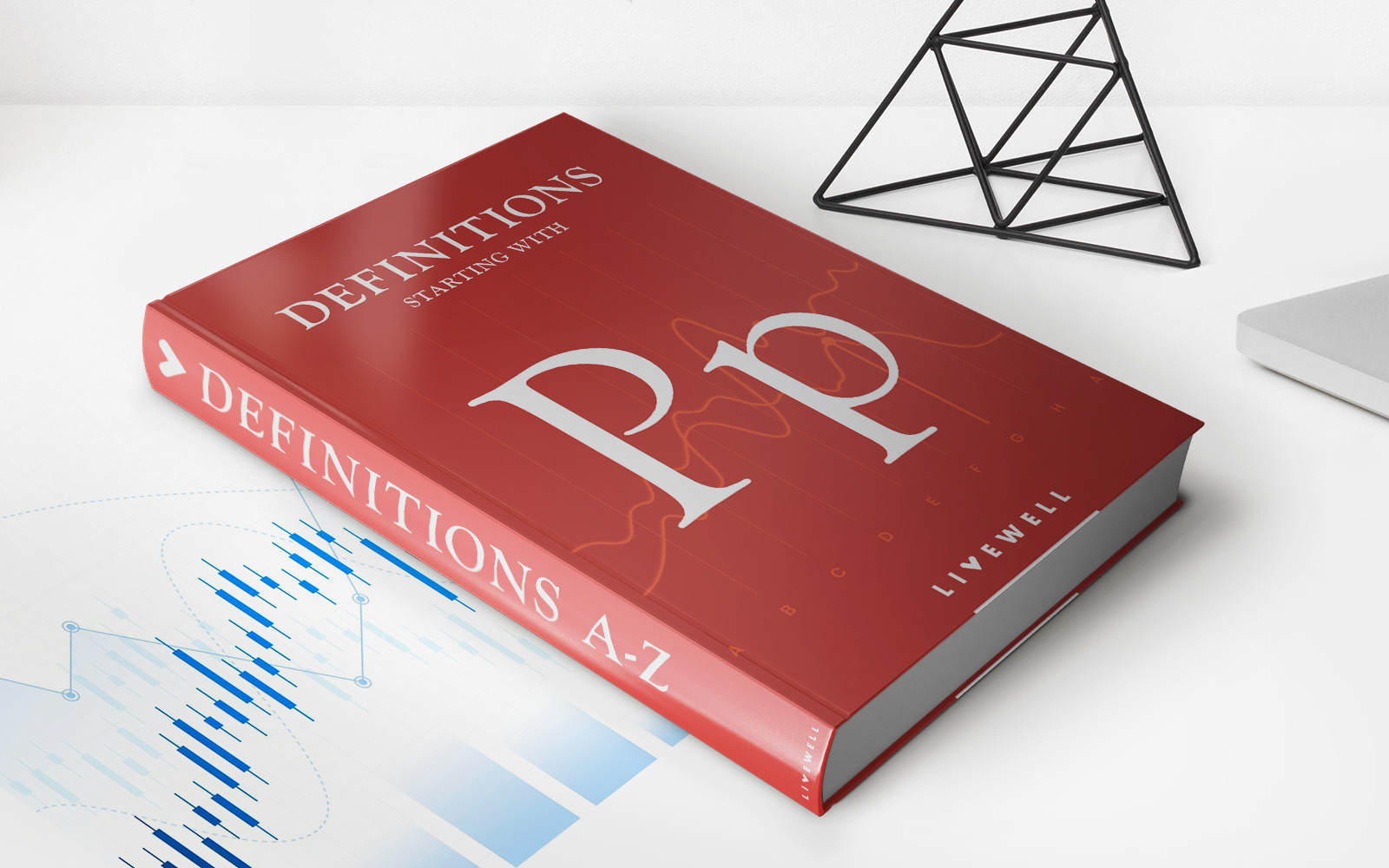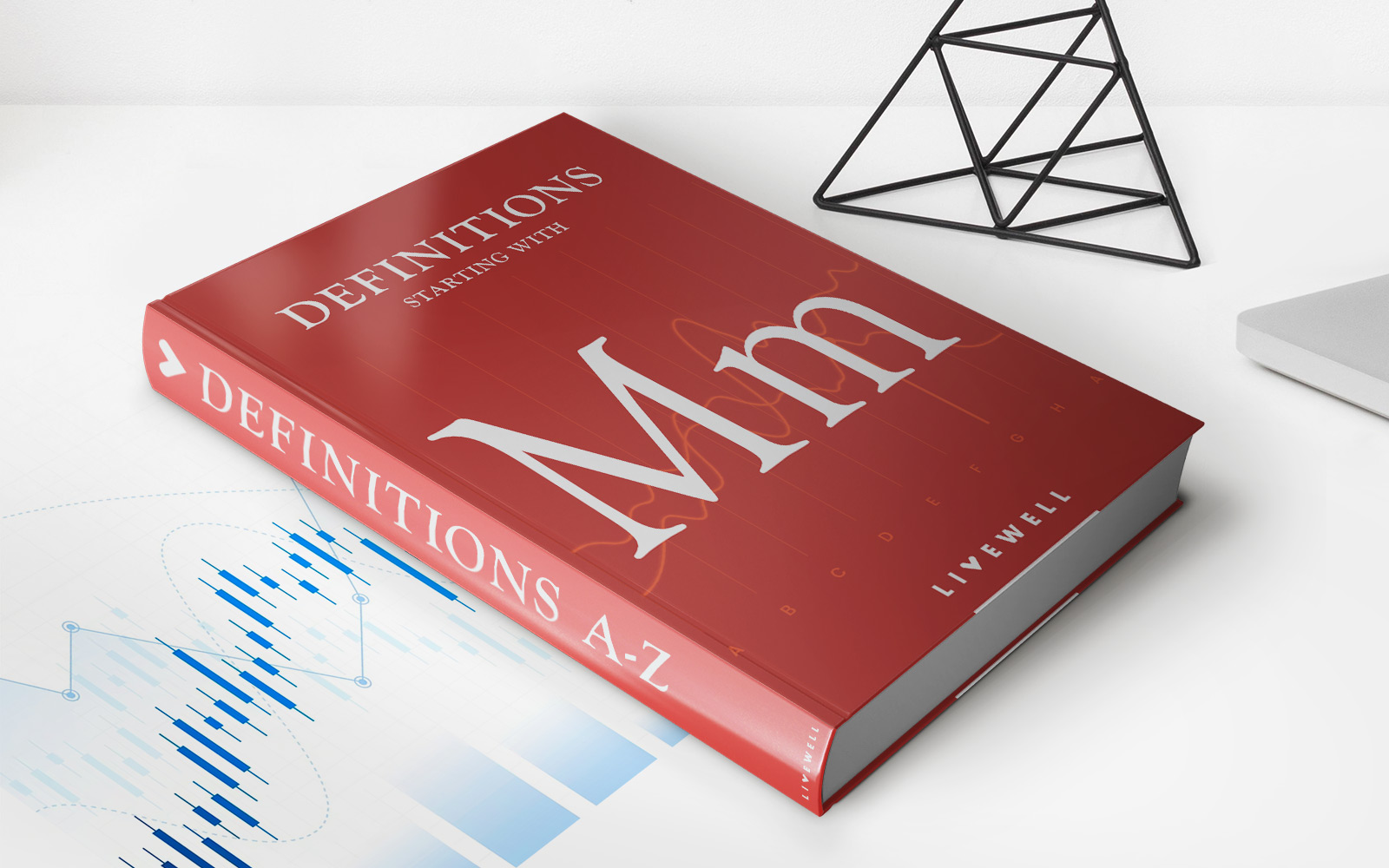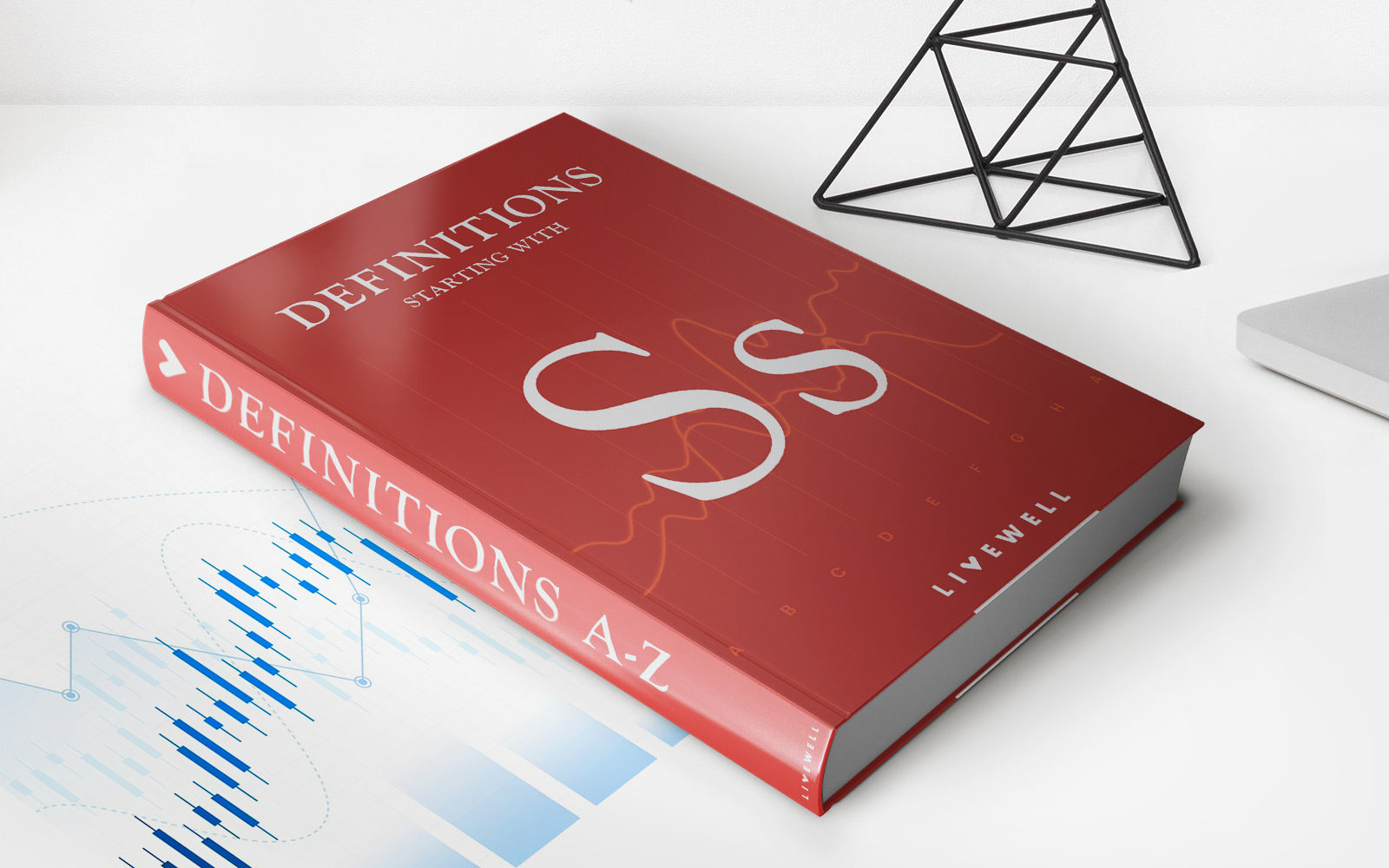

Finance
What Does Motor Truck Cargo Insurance Cover
Published: November 24, 2023
Motor Truck Cargo Insurance provides coverage for the financial protection of goods being transported in trucks, safeguarding against losses caused by theft, accidents, and other unforeseen events.
(Many of the links in this article redirect to a specific reviewed product. Your purchase of these products through affiliate links helps to generate commission for LiveWell, at no extra cost. Learn more)
Table of Contents
- Introduction
- Definition of Motor Truck Cargo Insurance
- Coverage for Loss or Damage to Cargo
- Coverage for Theft or Disappearance of Cargo
- Coverage for Accidents or Physical Damage
- Coverage for Liability Claims
- Exclusions and Limitations of Motor Truck Cargo Insurance
- How to Obtain Motor Truck Cargo Insurance
- Conclusion
Introduction
Motor truck cargo insurance is a crucial form of coverage that protects the transportation industry against the risks associated with the transportation of goods. It provides financial protection for loss, damage, theft, or disappearance of cargo being transported by motor trucks. This type of insurance is essential for companies involved in the shipment of goods, including trucking companies, freight forwarders, and logistics providers.
The transportation of goods involves inherent risks, such as accidents, theft, natural disasters, and unforeseen circumstances. These risks can result in loss or damage to the cargo, leading to substantial financial losses for both the cargo owners and the transportation companies. Motor truck cargo insurance helps mitigate these risks by providing coverage for a range of potential scenarios.
Without adequate insurance coverage, transportation companies may find themselves exposed to significant liabilities and financial hardships. In addition to the direct financial impact, the loss or damage of cargo can also lead to delays in supply chains, customer dissatisfaction, and damage to a company’s reputation.
Understanding the scope and coverage of motor truck cargo insurance is essential for both cargo owners and transportation companies. This article explores the various aspects of motor truck cargo insurance coverage, including protection for loss or damage to cargo, coverage for theft or disappearance of cargo, coverage for accidents or physical damage, coverage for liability claims, exclusions, limitations, and how to obtain this crucial form of insurance coverage.
By familiarizing yourself with motor truck cargo insurance, you can make informed decisions about the level of coverage needed to safeguard your cargo and mitigate the financial risks associated with transportation.
Definition of Motor Truck Cargo Insurance
Motor truck cargo insurance, also known as cargo insurance or goods in transit insurance, is a type of insurance coverage that protects against the loss, damage, theft, or disappearance of cargo being transported by motor trucks. It provides financial reimbursement to the cargo owner or transportation company for any financial losses incurred during the transportation process.
This type of insurance covers a wide range of goods and commodities being transported, including raw materials, finished products, equipment, and perishable items. It applies to various modes of transportation, such as long-haul trucks, delivery vans, and intermodal shipments.
Motor truck cargo insurance typically covers both domestic and international shipments, ensuring that cargo is protected regardless of the distance or destination. It offers coverage for a specified period, such as per trip or on an annual basis, depending on the policy agreement.
The coverage provided by motor truck cargo insurance can vary, but it generally includes protection against diverse risks, such as accidents, collisions, natural disasters, theft, vandalism, and other unforeseen events. It extends coverage not only while the cargo is being transported but also during loading and unloading processes.
Motor truck cargo insurance is essential for various parties involved in the transportation industry. Cargo owners, such as manufacturers, retailers, or wholesalers, can protect their valuable goods from potential losses during transit. Transportation companies, including trucking companies, freight forwarders, and logistics providers, can also benefit from this insurance coverage, safeguarding their financial stability by mitigating the risks associated with cargo transportation.
It’s important to note that motor truck cargo insurance should not be confused with commercial auto liability insurance, which primarily covers bodily injury and property damage caused by an accident involving a motor vehicle. While liability insurance is necessary for transportation companies, it does not provide coverage for the cargo itself.
Understanding the definition of motor truck cargo insurance and its role in protecting transported goods is essential for cargo owners and transportation companies. By obtaining the right insurance coverage, both parties can ensure their financial security and maintain their operations smoothly, even in the face of unexpected events.
Coverage for Loss or Damage to Cargo
One of the primary components of motor truck cargo insurance is coverage for loss or damage to cargo. This coverage provides financial protection for cargo owners and transportation companies in the event that the cargo sustains loss or damage during transportation.
Loss or damage to cargo can occur due to various factors, including accidents, collisions, fire, natural disasters, handling errors, or improper packaging. Without the proper insurance coverage, these incidents can result in significant financial losses for cargo owners and transportation companies.
Under motor truck cargo insurance, the policy will specify the coverage amount or the value at which the cargo is insured. In the event of loss or damage to the cargo, the insurance company will reimburse the cargo owner or transportation company for the insured amount, allowing them to recover their financial losses.
It’s important for cargo owners and transportation companies to accurately declare the value of the cargo and provide detailed documentation, including invoices, bills of lading, and proof of ownership, to support a claim for loss or damage to the insured cargo. This documentation is crucial for the insurance company to determine the appropriate reimbursement amount.
Coverage for loss or damage to cargo typically includes both partial and total loss scenarios. In the case of partial loss, where only a portion of the cargo is damaged or lost, the insurance company will reimburse the cargo owner or transportation company for the value of the damaged or lost portion. In the case of total loss, where the entire cargo is damaged or lost, the insurance company will reimburse the full insured amount.
It’s worth noting that there may be certain exclusions or limitations to coverage for loss or damage to cargo, as specified in the insurance policy. For example, the policy may exclude certain types of cargo or place limitations on coverage for perishable or fragile goods. It’s essential to review the policy carefully and understand the coverage terms and conditions.
By having adequate coverage for loss or damage to cargo, cargo owners and transportation companies can protect themselves from financial losses and ensure the safe transportation of goods. This coverage provides peace of mind and allows them to focus on their core business operations without the additional burden of financial liability caused by unforeseen circumstances.
Coverage for Theft or Disappearance of Cargo
Motor truck cargo insurance also provides coverage for theft or disappearance of cargo, offering financial protection for cargo owners and transportation companies in case their cargo is stolen or goes missing during the transportation process.
Theft or disappearance of cargo can occur due to various reasons, including criminal activities, unauthorized access, or internal theft. These incidents can result in substantial financial losses for cargo owners and transportation companies, as well as potential disruptions to supply chains and customer orders.
Under motor truck cargo insurance, the policy will specify the coverage for theft and disappearance and the conditions under which the insurance company will provide reimbursement. It is essential to understand the policy terms and conditions to ensure that the coverage aligns with the specific needs and risks involved in transporting the cargo.
When filing a claim for theft or disappearance of cargo, cargo owners and transportation companies must provide evidence to support their claim. This may include documentation such as police reports, statements from witnesses, or any other relevant information that can help prove the occurrence of theft or disappearance.
It’s important to note that certain exclusions or limitations may apply to the coverage for theft or disappearance of cargo. For example, there may be restrictions on coverage if the theft occurs due to inadequate security measures or if the cargo was left unattended for an extended period. Again, reviewing the insurance policy in detail and understanding the coverage terms is crucial.
By having coverage for theft or disappearance of cargo, cargo owners and transportation companies can minimize their financial risks and protect their valuable assets. This coverage not only provides financial compensation in case of theft but also helps deter theft by demonstrating that the cargo is insured, thus reducing the likelihood of criminal activities.
Implementing additional security measures, such as using tracking devices, conducting background checks on employees, or partnering with reputable transportation companies, can also help mitigate the risk of theft or disappearance. It’s essential to work closely with the insurance provider to identify and address any potential vulnerabilities in the transportation process.
By leveraging the coverage for theft or disappearance of cargo and implementing proper security measures, cargo owners and transportation companies can enhance the safety and security of their cargo during transit, ultimately safeguarding their financial well-being and reputation in the industry.
Coverage for Accidents or Physical Damage
Motor truck cargo insurance provides coverage for accidents or physical damage that may occur during the transportation of cargo. This coverage is designed to protect cargo owners and transportation companies from financial losses resulting from accidents, collisions, or physical damage to the cargo.
Accidents or physical damage can happen due to various factors, such as road hazards, driver error, equipment failure, or adverse weather conditions. These incidents can lead to significant damage or destruction of the cargo, resulting in financial implications for both the cargo owners and transportation companies involved.
Under motor truck cargo insurance, the policy outlines the coverage provided for accidents or physical damage and the conditions under which the insurance company will provide reimbursement. It’s important to review the policy terms and understand the coverage limits, deductibles, and any exclusions that may apply.
In the event of an accident or physical damage, cargo owners and transportation companies need to document the incident and provide evidence to support their claim. This may include photographs of the damaged cargo, accident reports, repair estimates, or any other relevant information that can substantiate the occurrence of the accident or physical damage.
The insurance coverage for accidents or physical damage typically includes both minor repairs and total loss scenarios. In cases where the cargo can be repaired, the insurance company will reimburse the cost of repairs. In cases of total loss, where the cargo is completely destroyed or beyond repair, the insurance company will reimburse the insured value of the cargo.
It’s essential to note that some policies may have limitations or exclusions in coverage for particular types of cargo or high-risk goods. For example, hazardous materials or extremely fragile items may have specific coverage terms or require additional endorsements or riders to the insurance policy.
Having coverage for accidents or physical damage ensures peace of mind for cargo owners and transportation companies, as it helps mitigate the financial risks associated with unforeseen incidents. This coverage allows them to focus on their core operations, knowing that they are protected against the potential financial impact of accidents or physical damage.
Additionally, implementing preventive measures, such as regular vehicle maintenance, driver training programs, and adherence to safety regulations, can help minimize the occurrence of accidents or physical damage during transportation. Working closely with the insurance provider and establishing a risk management strategy can further enhance the safety and efficiency of the transportation process.
By leveraging the coverage for accidents or physical damage and taking proactive measures, cargo owners and transportation companies can protect their cargo, minimize potential disruptions, and maintain their financial stability, even in challenging circumstances.
Coverage for Liability Claims
In addition to coverage for the loss, damage, theft, or disappearance of cargo, motor truck cargo insurance also provides coverage for liability claims. This coverage protects cargo owners and transportation companies from financial liabilities that may arise from accidents or incidents during the transportation process.
Liability claims can emerge when third parties, such as other motorists, pedestrians, or property owners, suffer bodily injury or property damage as a result of an accident involving a motor truck. These claims can lead to substantial financial settlements, legal fees, and other expenses if not adequately covered by insurance.
Under motor truck cargo insurance, the liability coverage typically includes legal defense costs and the settlement or judgment amount in the event that the transportation company or its driver is found liable for the accident or incident. It can also cover medical expenses and property damage sustained by the third parties involved.
It’s crucial to review the policy terms to understand the limits of liability coverage and any exclusions or limitations that may apply. Different insurance policies may have varying coverage limits, deductibles, and conditions for liability claims. Working closely with the insurance provider to customize the coverage to the specific needs and risks involved is advisable.
When faced with a liability claim, cargo owners and transportation companies must promptly notify their insurance provider and provide all relevant information and documentation regarding the incident. This includes accident reports, witness statements, photographs, and any other evidence that can support their case.
The insurance provider will then assess the claim and work towards a resolution, either through negotiation or, if necessary, through legal proceedings. Having liability coverage not only provides financial protection but also allows cargo owners and transportation companies to focus on their business operations without the added burden of legal issues.
It’s important to note that motor truck cargo insurance liability coverage is different from commercial auto liability insurance, which primarily covers injuries and property damage caused by an accident involving a motor vehicle. Liability coverage under motor truck cargo insurance specifically focuses on liabilities arising from the transportation of cargo.
By securing liability coverage under motor truck cargo insurance, cargo owners and transportation companies can protect themselves from the potentially significant financial liabilities that may arise from accidents or incidents during the transportation process. This coverage provides peace of mind and allows them to operate with confidence, knowing that they are financially protected against unforeseen legal claims.
Exclusions and Limitations of Motor Truck Cargo Insurance
While motor truck cargo insurance provides valuable coverage for the transportation of goods, it’s essential to be aware of the exclusions and limitations that may apply. These exclusions and limitations outline the specific scenarios or conditions under which the insurance company may not provide coverage or may limit the reimbursement amount.
Common exclusions in motor truck cargo insurance policies include:
- Deliberate or illegal acts: Insurance coverage typically does not apply if the loss, damage, theft, or disappearance of cargo occurs due to intentional or criminal acts by the insured party or its employees.
- Natural wear and tear: Normal wear and tear, deterioration, or inherent vice of goods, such as perishable items or fragile goods, may not be covered under the policy.
- Improper packaging or handling: If the cargo is not properly packaged, secured, or handled according to industry standards, the insurance coverage may be voided or limited.
- Unattended cargo: Leaving the cargo unattended for an extended period or in unsecured areas may lead to limitations or exclusions in coverage.
- Specific cargo types: Certain high-risk or hazardous goods may have limited coverage or require additional endorsements or riders to the policy.
In addition to exclusions, there are also limitations to the coverage provided by motor truck cargo insurance:
- Policy limits: The policy will specify the maximum coverage amount or the maximum value at which the cargo is insured. It’s crucial to review the policy limits and ensure they align with the value of the cargo being transported.
- Deductibles: Insurance policies often include deductibles, which are the amounts that the insured party must pay out of pocket before the coverage kicks in. It’s important to understand the deductible amount and factor it into the overall cost of insurance.
- Sub-limits: Some policies may have sub-limits for specific types of losses or damage. For example, there may be sub-limits for electronic equipment, fine art, or jewelry. It’s important to be aware of these sub-limits and assess if additional coverage or endorsements are required.
- Waiting periods: Certain insurance policies may have waiting periods before coverage becomes effective. It’s essential to understand these waiting periods to ensure the proper timing of coverage.
It is crucial for cargo owners and transportation companies to carefully read and understand the terms and conditions of the motor truck cargo insurance policy. Working closely with the insurance provider can help clarify any doubts, address specific concerns, and customize the coverage to meet the unique needs and risks associated with the transportation of their cargo.
By being aware of the exclusions and limitations, cargo owners and transportation companies can make informed decisions regarding risk management, implement necessary preventive measures, and explore additional insurance options to address any gaps in coverage that may exist.
How to Obtain Motor Truck Cargo Insurance
Obtaining motor truck cargo insurance is essential for cargo owners and transportation companies to protect their goods and mitigate the financial risks associated with transportation. Here are the steps to follow when obtaining this crucial form of insurance coverage:
- Research and compare insurance providers: Start by researching and identifying reputable insurance providers that specialize in motor truck cargo insurance. Look for companies with experience in the transportation industry and positive customer reviews.
- Assess your specific needs: Evaluate your cargo transportation needs, including the types of goods you handle, the distance traveled, and any unique risks associated with your operation. This assessment will help you determine the necessary coverage limits and any additional endorsements or riders you may require.
- Request and compare quotes: Reach out to multiple insurance providers and request quotes based on your specific needs. Compare the coverage, limits, deductibles, and premiums offered by each provider to ensure you are getting the best value for your insurance investment.
- Review policy terms and conditions: Once you receive quotes, review the policy terms and conditions carefully. Pay attention to exclusions, limitations, deductibles, and any special requirements. Seek clarification from the insurance provider if there are any aspects you do not fully understand.
- Provide accurate information: When applying for motor truck cargo insurance, provide accurate and detailed information about your cargo, transportation methods, safety practices, and any previous claims history. Inaccurate or incomplete information may lead to issues with coverage or claims in the future.
- Customize your coverage: Work closely with the insurance provider to customize your coverage to meet your specific needs. Discuss any additional endorsements or riders that may be necessary, such as coverage for high-value goods or specific types of cargo.
- Understand claims procedures: Familiarize yourself with the claims procedures and requirements of the insurance provider. Know whom to contact and what documentation is needed in the event of a claim. Promptly report any incidents or losses to ensure a smooth claims process.
- Continuously assess and update your coverage: As your business evolves, regularly assess your coverage needs. Keep your insurance provider informed about any changes in your operations, such as expanding your fleet, entering new markets, or handling different types of goods.
By following these steps, cargo owners and transportation companies can obtain the necessary motor truck cargo insurance coverage to protect their assets and ensure financial security throughout the transportation process.
Working closely with a knowledgeable insurance professional can also provide valuable guidance and assistance in navigating the complexities of obtaining motor truck cargo insurance. They can help you identify potential risks, tailor coverage to your needs, and ensure that you have the most comprehensive and suitable insurance protection for your cargo.
Conclusion
Motor truck cargo insurance is a vital form of coverage for cargo owners and transportation companies involved in the shipment of goods. It provides financial protection against the risks associated with the transportation process, including loss, damage, theft, or disappearance of cargo, as well as liabilities arising from accidents or incidents.
By obtaining motor truck cargo insurance, cargo owners can ensure the safety and security of their valuable goods throughout the transportation journey. Transportation companies can protect their financial stability by mitigating the potential risks that may arise from unforeseen circumstances.
Throughout this article, we have explored the various aspects of motor truck cargo insurance, including its definition, coverage for loss or damage to cargo, coverage for theft or disappearance of cargo, coverage for accidents or physical damage, coverage for liability claims, and the exclusions and limitations that may apply.
To obtain motor truck cargo insurance, cargo owners and transportation companies should research, compare quotes, and work closely with reputable insurance providers. It is crucial to evaluate specific needs, review policy terms and conditions, and customize coverage to ensure adequate protection.
It’s important to understand that motor truck cargo insurance is more than just a legal requirement; it is a strategic investment in the financial security and reputation of cargo owners and transportation companies. It provides peace of mind, allows for seamless operations, and safeguards against potential financial hardships resulted from unforeseen incidents.
Continuously assessing coverage needs, implementing preventive measures, and working closely with insurance providers to address any gaps or changes in the transportation process are crucial steps in maintaining comprehensive and effective motor truck cargo insurance coverage.
In conclusion, motor truck cargo insurance serves as a critical safety net for cargo owners and transportation companies. By securing this coverage, they can navigate the complexities of cargo transportation with confidence, knowing that their valuable goods and financial stability are protected.














